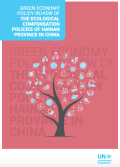
In order to help countries to review and assess the coherence and effectiveness of existing policies in fostering Inclusive Green Economy transitions to achieve the SDGs, UNEP developed a green economy policy review methodology. This summary showcases the results of a longer study that used the methodology to review Ecological Compensation Policies of Hainan Province in China.
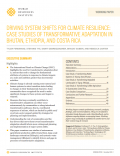
This working paper examines case studies of three communities in Bhutan, Ethiopia and Costa Rica that are already experiencing severe impacts of climate change.
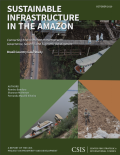
The case study analyses the links between infrastructure development, deforestation, governance, and security challenges in the Brazilian Amazon.
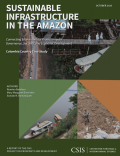
The case study lays out the challenges and opportunities for Colombia, exploring the connection between deforestation and security, governance, and infrastructure development and the implications for stabilization in Colombia.
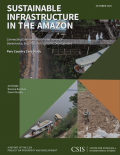
The present case study analyses infrastructure development in the Peruvian Amazon and its connection to deforestation, human security, and the rule of law.
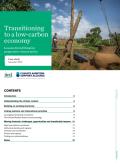
This case study explores the foundations of Ethiopia’s ambitious climate policy, how it rose to meet national and international priorities, and what has helped this work flourish despite the challenges of implementation.
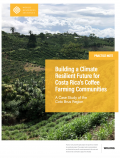
This practice note examines how climate change is threatening coffee-growing regions in Costa Rica, specifically the Coto Brus region. The case study outlines key findings from this region, including main challenges and existing factors that present opportunities to enhance climate resilience, and recommends actions that key sectoral actors can take to improve the sector’s climate resilience and long-term sustainability.
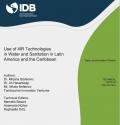
The goal of this report is to provide an overview of some of the current applications of key 4IR technologies (Artificial Intelligence, the Internet of Things and Big Data, Blockchain, Drones and Remote Sensing, and Virtual and Augmented Reality) in the Water, Sanitation and Hygiene sector (WASH) globally and in the Latin American and the Caribbean (LAC) region, and outline the main opportunities and challenges in deploying these technologies in the WASH sector.
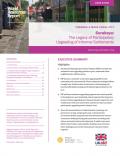
This case study explores Indonesia’s inclusive housing policy and how the Kampung Improvement Program (KIP) became a model for in situ slum upgrading efforts both nationwide and internationally.
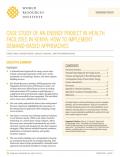
This report analyses the factors that underpinned the loan repayment and highlighted the importance of the demand-based approach when designing energy access projects.
